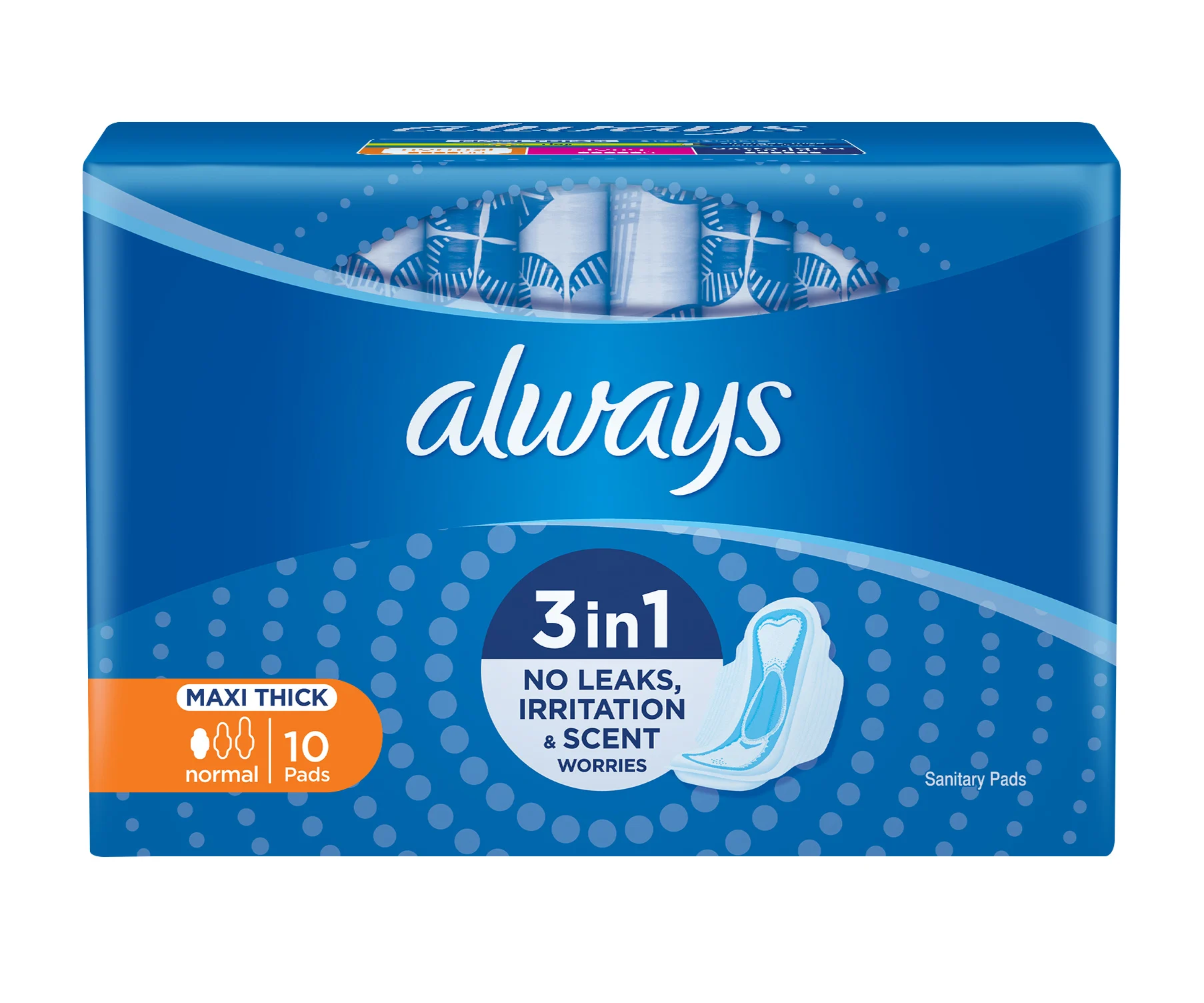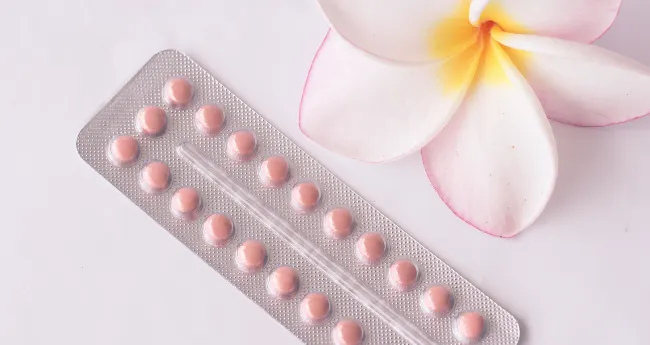Can You Get Pregnant If You Have Intercourse During Your Period? Risks, Facts & Myths

Whether you are planning a pregnancy or looking to avoid one, the question of “Can you get pregnant on your period?”. A widely held belief suggests that having intercourse while on your period is a natural safeguard against pregnancy. However, there are times when people have stated, "I got pregnant on my period," challenging this assumption. While the chances of getting pregnant on your period are relatively low, they are not entirely absent.
Sperm can survive in the female reproductive tract for up to five days, meaning that if ovulation occurs soon after the menstrual period, fertilisation may still be possible. Additionally, menstrual cycles vary among individuals, and those with shorter cycles may ovulate sooner than expected, increasing the risk of pregnancy even if intercourse occurs during menstruation. So, can you truly get pregnant while on your period? The short answer is yes—although the likelihood is lower, it is possible. In this article, we will explore the biological factors that contribute to this possibility and provide a clearer understanding of how conception can occur even during menstruation.
- Can You Get Pregnant If You Have Intercourse During Your Period?
- How Your Menstrual Cycle Works
- Getting Pregnant on Your Period: How Does It Happen?
- What Affects Your Chances of Conceiving on Your Period?
- How to Track Your Fertility Window
- Is It Safe to Have Intercourse During Your Period?
- Risks of Having Intercourse on Your Period
- Benefits of Having Intercourse During Your Period
- What About Having Intercourse Before Your Period?
- Take Precautions with Birth Control
Can You Get Pregnant If You Have Intercourse During Your Period?
Yes, although the likelihood is lower, pregnancy during menstruation is still possible, particularly for individuals with a shorter menstrual cycle. Sperm can remain viable within the reproductive tract for up to five days, meaning that if ovulation occurs shortly after menstruation, fertilisation may still take place.
How your menstrual cycle works
Let us understand the basics. The average length of a menstrual cycle varies between 28 to 35 days. It begins with your period also known as the days when your body loses blood at the end of an ovulatory cycle. This happens when an egg is not fertilised by a sperm.
An egg is released every month on approximately day 14 of the cycle. The ovulation date varies for everyone and may not be the same every cycle. This is especially true for those who have irregular cycles. Ovulation is the most fertile time in your menstrual cycle and it occurs midway through the cycle.
It is known that sperm can survive in the reproductive tract for several days. This means that a woman can get pregnant by having an intercourse during ovulation or the days leading up to it. These days are popularly known as the fertile window. So, if you’re wondering how many days after your period can you get pregnant, the fertile window is your best bet!

Getting pregnant on your period: How does it happen?
A common assumption is that having intercourse during periods eliminates the possibility of pregnancy. However, depending on your cycle length, sperm survival, and ovulation timing, conception can still occur.
Menstrual Cycle Length and Pregnancy Risk
| Cycle Length | Ovulation Timing (Approximate) | Pregnancy Risk During Period |
|---|---|---|
| 21 Days (Short Cycle) | Day 7 | High – Sperm may still be viable when ovulation occurs |
| 24 Days | Day 10 | Moderate – Possible if sperm survives several days |
| 28 Days (Average Cycle) | Day 14 | Low – Less likely, but not impossible |
| 35 Days (Long Cycle) | Day 21 | Very Low – Ovulation occurs much later |
Even though the probability of conceiving while having intercourse on your period is lower, it is not zero. Tracking your ovulation cycle and using contraception if pregnancy is not desired is essential.

What Affects Your Chances of Conceiving on Your Period?
If you’re trying to conceive, understanding how intercourse during periods can lead to pregnancy is essential. While the chances of getting pregnant maybe lower, conception is still possible under certain conditions. Several factors influence your likelihood of getting pregnant while menstruating:
Cycle Length: Women with short cycles (21–24 days) may ovulate sooner, increasing the risk of pregnancy. If sperm is still viable, fertilisation can occur.
Sperm Lifespan: Sperm can survive in the female reproductive tract for up to five days, meaning if ovulation occurs early, conception is possible even after having intercourse on period.
Ovulation Timing: Women with irregular cycles may experience unexpected ovulation, making conception more likely, even when menstruating.
Hormonal Fluctuations: Variations in oestrogen and progesterone levels can affect ovulation timing and fertility, increasing the chances of pregnancy even when you think you're in a "safe" phase of your cycle.
If you're trying to avoid pregnancy, using contraception is essential, as you can get pregnant while on your period, especially if your cycle is irregular or shorter than average.
How to Track Your Fertility Window
Understanding your fertility window can help you predict the safest and most fertile days in your cycle. Methods to track ovulation include:
Basal Body Temperature (BBT): A slight increase in temperature signals ovulation.
Cervical Mucus Changes: Ovulation is near when the mucus becomes clear and stretchy.
Ovulation Predictor Kits (OPKs): Detects the LH surge before ovulation.
Menstrual Tracking Apps: Helps predict fertile days based on past cycles.
Is It Safe to Have Intercourse During Your Period?
Yes, intercourse while on period is generally safe, but it carries some risks. Increased vaginal pH levels can raise the likelihood of infections, including STIs. Using protection reduces these risks.
Risks of Having Intercourse on Your Period
While having intercourse during periods is safe for most, some risks include:
Higher Risk of STIs: Blood can facilitate the spread of HIV and other infections.
Increased Chance of UTIs: Bacteria may enter the urinary tract more easily.
Messiness & Disc
Benefits of Having Intercourse During Your Period
Despite potential risks, there are several benefits to having intercourse while on your period, including:
Relief from Menstrual Cramps: Orgasms release endorphins, which act as natural pain relievers, helping to ease cramps and improve mood.
Shorter Periods: Uterine contractions during orgasm may help the uterus shed its lining faster, potentially shortening the length of your period.
Increased Libido: Some women experience a spike in sexual desire during menstruation due to hormonal fluctuations.
What About Having Intercourse Before Your Period?
Many assume that having intercourse before period is a safe way to avoid pregnancy, but this isn’t always true. Sperm can survive in the female reproductive tract for up to five days, meaning if ovulation occurs later than expected, fertilisation can still happen. To prevent unintended pregnancy, contraception should be used even when having intercourse before period or during menstruation.
Take precautions with birth control
For those who want to get pregnant, it is best to have intercourse during your fertile window. Although it is possible to get pregnant by having intercourse during your period if your menstrual cycle is fewer than 28 days.
On the other hand, if you are trying to prevent pregnancy, it is highly recommended that you use contraception every time. This could be done by either wearing a condom or taking birth control pills.
Takeaway
For those who want to avoid getting pregnant and are thinking can you get pregnant while on your period, it is important to use protection as there is always a possibility. Whereas for those who want to get pregnant, know that ovulation cycles can be tricky, which means it’s possible you could become pregnant while on your period. Talk to your doctor if you’ve been trying to get pregnant for over a year. You may be asked to track your cycle to identify your fertile window.
Wondering how to induce period? Discover simple and effective tips to help regulate your cycle.
Try our period calculator to track your days and plan your fertility window.

Disclaimer:
Please note the date of last review or update on all articles. No content on this site, regardless of date, should ever be used as a substitute for direct medical advice, diagnosis or treatment from your doctor or other qualified clinician. Always is committed to ensuring that all of our products meet rigorous safety standards; Always pads prioritize safety, protection and comfort of its consumers.





